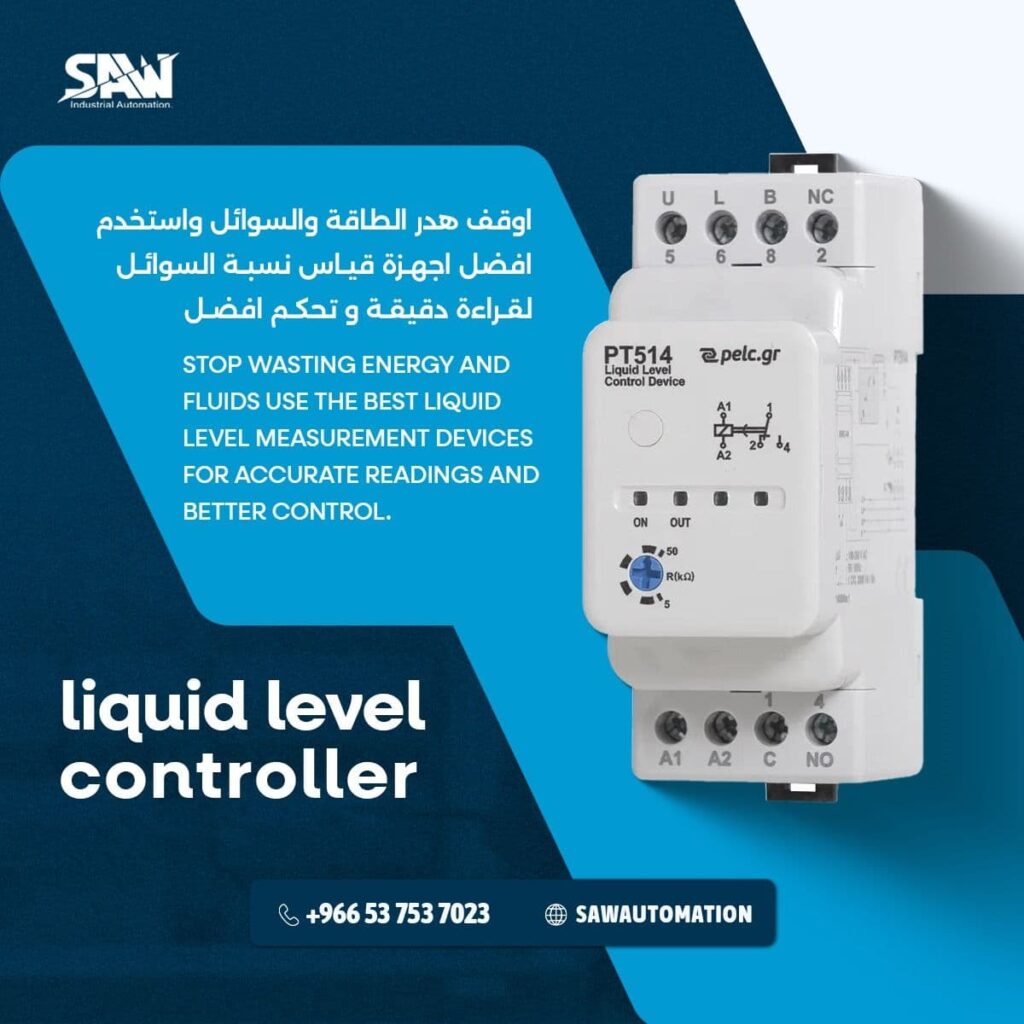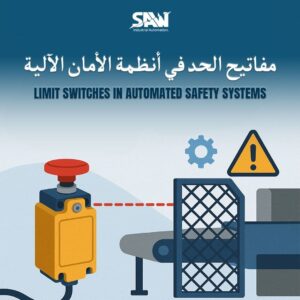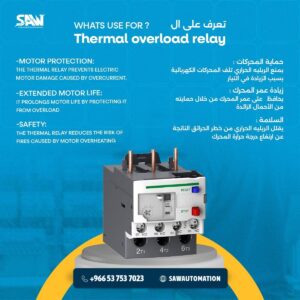The Importance and Benefits of Liquid Level Controllers

The Importance and Benefits of Liquid Level Controllers
Saw Automation & Electrical Parts
Liquid level controllers are essential devices in many industrial and agricultural fields for effectively and safely managing liquid storage in tanks and warehouses.
In today’s article, we will discuss the operating systems of these devices, their prominent uses in various sectors, and also learn about their most important benefits. We will also provide you with some tips on how to use them.
What is a Liquid Level Controller?
A liquid level controller works to manage liquid storage automatically and systematically by relying on advanced systems such as sensors, electronic circuits, and floats.
These devices monitor and detect liquid levels, and if the liquid level falls below the minimum, they issue commands to operate the pump to fill the liquids.
In the case of the liquid level reaching the maximum limit, the device also automatically issues commands to stop the pump operation to avoid damage resulting from high levels and leaks.
The Importance of Liquid Level Controllers
The importance of liquid level controllers is reflected in several different aspects, including the following:
Improving Operational Efficiency
These devices work to enhance operational efficiency in industrial establishments through precise control of liquid levels and maintaining smooth operating systems without problems or malfunctions.
Maintaining Product Quality
These devices are relied upon in the food and pharmaceutical industries, which require precise levels of liquids, in order to maintain those levels and thus produce high-quality products.
Enhancing Precautionary Measures
In facilities that use hazardous liquid materials, liquid control devices are relied upon to achieve monitoring of the levels used and reduce the risks resulting from exceeding the limit.
Rationalizing Consumption
The importance of liquid control devices in industrial and agricultural facilities is reflected in rationalizing consumption by reducing the risk of floods and leaks, which may cause significant losses later.
Saving Money
These devices contribute to saving money in two aspects. The automation of these device systems reduces the need for human inspections, thus reducing financial costs in exchange for labor wages.
On the other hand, control devices help reduce the risks of floods and leaks of fluids, which may cause damage to equipment and machinery, thus saving maintenance costs.
In general, liquid control devices help increase productivity, reduce recurring maintenance costs, as well as conserve resources and protect the environment from the risks of leaks into water or soil.
Benefits of Liquid Level Controllers
Liquid level controllers are used in several different fields due to their multiple benefits. Their most prominent benefits are as follows:
• Managing water levels in domestic water tanks.
• Controlling supply levels in irrigation systems to rationalize water consumption and protect the soil from the risk of excessive saturation or water shortage.
• Managing liquid levels of chemicals or oil in production and operation systems.
• The ability to remotely control liquid levels through modern and advanced systems.
• Rationalizing energy consumption and reducing electricity bills.
• Considered a smart investment in controlling liquids and rationalizing their consumption due to their effectiveness and long lifespan.
• Contributing to environmental preservation from the risk of water or soil pollution by limiting the risks of floods and leaks.
How Liquid Level Control Devices Work
There are different operating systems for liquid level controllers, which aim to monitor and control liquid levels and issue commands to stop or start pumps as needed.
Among the most famous operating systems for these devices are the following:
Float Systems
The concept of the float system is based on some floating devices that float on the liquid to determine the rise or fall of liquid levels to manage storage and control to avoid abnormal changes.
Electrical Conductivity Sensor Systems
Some control devices rely on electrical conductivity, in case the liquids are electrically conductive, to monitor and measure liquid levels to detect any changes.
Optical Sensor Systems
There are also some devices that rely on light rays and reflections to effectively estimate and measure levels and issue signals when reaching the minimum or maximum limit.
Pressure Sensor Systems
As for the mechanism of control devices with pressure sensor systems, they mainly rely on measuring the pressure resulting from liquid levels in order to achieve measurement and monitoring.
Examples of Liquid Level Controller Applications
As we discussed earlier, the importance of liquid level controllers in monitoring liquid levels, rationalizing their consumption, and maintaining the safety of equipment and devices from the risk of floods has become clear.
Therefore, these devices have become commonly used in various sectors, and among the most prominent of these uses are the following:
Domestic Uses
Some homeowners rely on these devices to manage domestic water tanks, which contributes to maintaining water levels without waste or excess leaks.
Industrial Sector
Some food, chemical, oil, and other industries use these devices to manage liquid inventories in order to maintain operational efficiency and production continuity.
Agricultural Sector
These devices are also used in the agricultural sector, especially in managing irrigation system supplies, thus maintaining water levels and the safety of crops from the risk of saturation or water shortage.
Medical Laboratories
Some laboratories and medical labs rely on activating liquid control devices to manage the storage of some liquids used in drug manufacturing, such as medical solvents, medical gases, and the like.
The Importance of Periodic Maintenance
Repeated use of liquid level controllers over time may cause some technical or technological problems that may cause poor performance.
Therefore, it is necessary to maintain periodic maintenance of these devices from time to time in order to maintain the efficiency of the device’s operation and reduce the possibility of sudden malfunctions of the device.
The main steps for periodic maintenance are as follows:
• Conducting a cleaning cycle for maintenance system sensors to get rid of dust and impurities that may cause poor performance and inaccurate level readings.
• Updating the technical software for modern devices in order to obtain the latest version of the system and get the best performance.
• Examining mechanical parts to verify their integrity and the absence of any damaged parts that require maintenance or replacement.
Tips for Improving the Performance of Liquid Level Control Devices
Misuse of liquid level controllers may affect the level and efficiency of performance. Therefore, care must be taken to optimally use these devices to obtain a better level of performance.
Here are the most important tips for improving the performance of these devices:
• Clean sensors regularly from dust and impurities.
• Conduct periodic inspections of device components such as pumps, sensors, and electrical connections to detect and repair any initial malfunctions.
• Test the device regularly to verify effective response, correct reading indicators, and their accuracy.
Liquid level controllers have become vital devices in many different sectors due to their effectiveness in managing and automating liquid level management systems efficiently and with high accuracy.
Future expectations indicate more developments in the work of these devices, which contributes to expanding the scope of their use and providing ideal and more advanced performance, interacting with modern technical systems.




